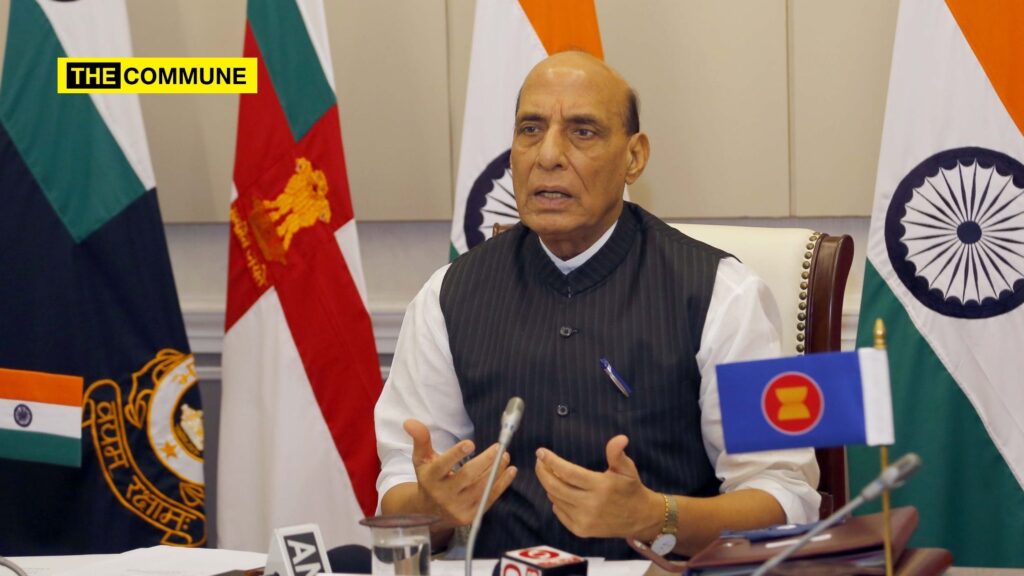With the world’s leading economic powers putting pressure on China, India has now put its weight around the freedom of navigation, overflight, and unimpeded commerce in international waterways, particularly the South China Sea.
Defence Minister Rajnath Singh said on Wednesday (June 16) said that India faces maritime security challenges hinting at China’s expansionist policy in the Indo-Pacific region.
Singh was making his address at the eighth meeting of Defence Ministers from the Association of Southeast Asian Nations (ASEAN) when he said, “The sea lanes of communication are critical for peace, stability, prosperity and development of the Indo-Pacific region. In this regard, developments in the South China Sea have attracted attention in the region and beyond,”.
Addressed the 8th ASEAN Defence Ministers’ Plus Meeting (ADMM-PLUS)
— Rajnath Singh (@rajnathsingh) June 16, 2021
today and shared India’s views and outlook on the Regional and International Security Environment. Here is the link to the text of my speech.https://t.co/RoLtfJgUwb pic.twitter.com/ndpqArmjUl
“India hopes that the Code of Conduct negotiations will lead to outcomes that are in keeping with international law, including the United Nations Convention on the Law of the Sea (UNCLOS) and do not prejudice the legitimate rights and interests of nations that are not a party to these discussions,” he said.
Rajnath Singh was very clear about China’s unabated expansion and the escalating territorial conflict in the South China Sea which has threatened the territorial rights in the waters with Brunei, Indonesia, Malaysia, Philippines, Taiwan, and Vietnam.
India believes in a free, open and inclusive order in the Indo-Pacific, based upon respect for sovereignty and territorial integrity of nations which is now being openly challenged by China that thinks it has the rights and has also failed to adhere to international rules and laws.
“India has strengthened its cooperative engagements in the Indo-Pacific based on converging visions and values for promotion of peace, stability, and prosperity in the region,” the minister said.
The defence ministers had gathered for an online meeting hosted by Brunei, this year’s ASEAN chair.
Since Narendra Modi became Prime Minister of India in 2014, India has developed a strong policy to have closer ties with its neighbours and the ‘Act East Policy’ has now become a cornerstone of its foreign policy.
India wants to promote economic cooperation, cultural ties and develop strategic relationships with countries in the Indo-Pacific region through engagement at bilateral, regional and multilateral levels.
Singh also spoke about the threats of terrorism and radicalization to peace and security in the world and said India has global concerns about terrorism as the networking amongst terrorists is reaching alarming proportions.
He added that only through collective cooperation can nations counter, terror organizations, identify the perpetrators identified and held accountable, and the time has come to take strong measures against anyone who supports, encourage, support, and finance terrorism by providing sanctuary to terrorists.
“As a member of the Financial Action Task Force (FATF), India remains committed to combat financing of terrorism,” the minister said.
Click here to subscribe to The Commune on Telegram and get the best stories of the day delivered to you personally.

